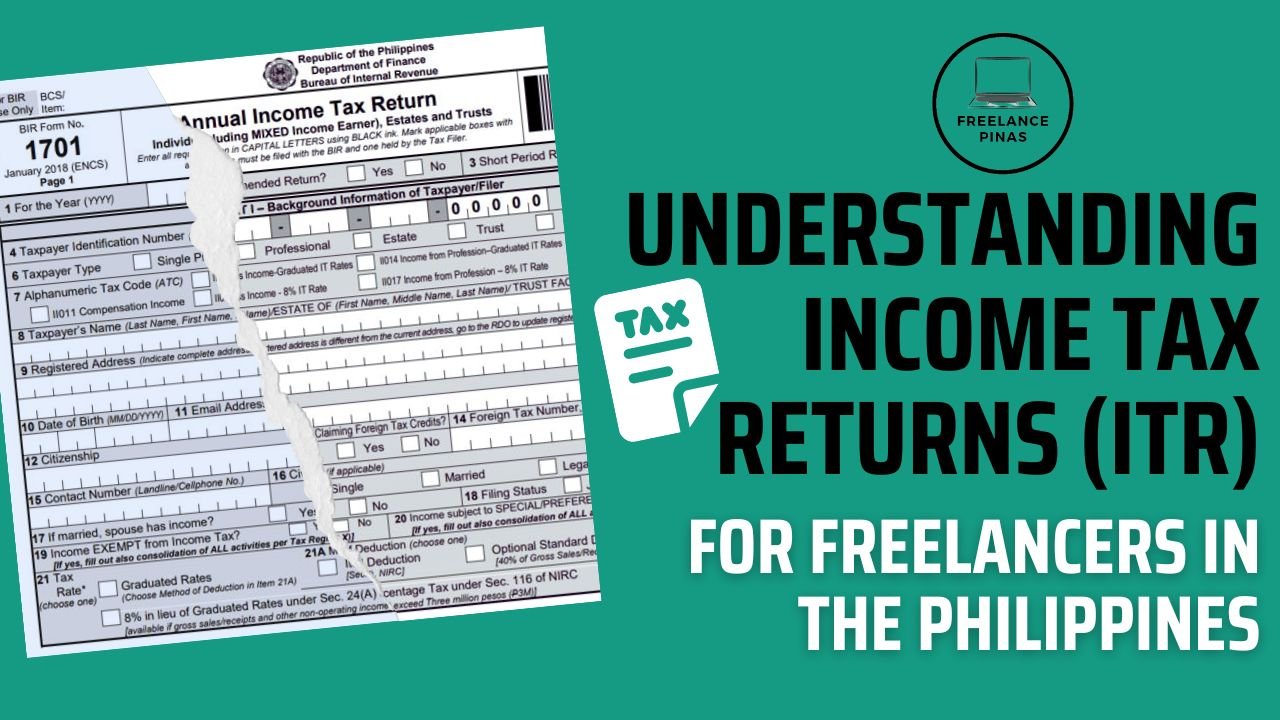Freelancing has become a popular and flexible career option for many individuals in the Philippines. Whether you are a freelance writer, graphic designer, virtual assistant, or any other type of independent contractor, it is essential to stay informed about your tax obligations. Like any other income-earning individual, freelancers are required to file Income Tax Returns (ITR) with the Bureau of Internal Revenue (BIR). In this article, we will explore the basics of ITR for freelancers in the Philippines, including the process, deadlines, and important considerations.
- Determining Taxable Income
Before filing your ITR, you must accurately calculate your taxable income. As a freelancer, your taxable income includes the payments you receive from your clients or projects, minus allowable deductions and exemptions. Deductible expenses may include business-related expenses, such as internet costs, office supplies, and transportation expenses directly related to your freelance work. Be sure to keep proper documentation and receipts for these expenses to support your claims.
- Registering with the BIR
All freelancers earning income in the Philippines are required to register with the BIR. You will need to secure a Tax Identification Number (TIN) and register as a self-employed individual. Registration can be done at the BIR office in your area or through the online platform eREG (Electronic Registration System) provided by the BIR.
- Filing the ITR
The deadline for filing ITRs in the Philippines is usually on or before April 15 of the following year. However, be sure to check with the BIR for any updates or changes to the deadline. Freelancers can file their ITR manually by visiting the nearest BIR office or electronically through the BIR’s eFPS (Electronic Filing and Payment System) or eBIRForms platform.
- Payment of Taxes
Along with filing your ITR, you will need to settle any tax dues you owe to the government. If you expect to owe a significant amount of tax, you may choose to make quarterly tax payments to avoid a large tax bill at the end of the year. It’s essential to accurately compute your tax liabilities to avoid penalties and interest charges.
- Considerations for Withholding Tax
Freelancers may encounter situations where their clients withhold taxes from their payments. This is known as withholding tax, and it is usually applied when your client is a registered taxpayer required to withhold taxes under the Expanded Withholding Tax (EWT) or Final Withholding Tax (FWT) system. The withheld amount will be credited against your annual tax liability when you file your ITR.
- Availing of Tax Deductions and Exemptions
As a freelancer, you may be eligible for certain tax deductions and exemptions. The BIR provides specific deductions for self-employed individuals, such as the Optional Standard Deduction (OSD) or Itemized Deductions. Moreover, some individuals may qualify for personal exemptions, reducing their taxable income further.
- Consulting with a Tax Professional
Navigating the intricacies of taxation can be challenging, especially for freelancers with fluctuating income and varying expenses. To ensure compliance and maximize tax benefits, consider seeking advice from a tax professional or accountant. They can guide you through the process, help you optimize your tax situation, and keep you up-to-date with any changes in tax laws.
As a freelancer in the Philippines, filing your Income Tax Returns is a crucial responsibility that ensures you are compliant with the country’s tax laws. Properly calculating your taxable income, registering with the BIR, and meeting the deadlines are vital steps to avoid penalties and maintain a good standing with the government. Keep meticulous records of your income and expenses, and consult with a tax professional if you need assistance in navigating the complexities of taxation. By staying informed and proactive, freelancers can fulfill their tax obligations efficiently while optimizing their tax liabilities within the legal framework.
